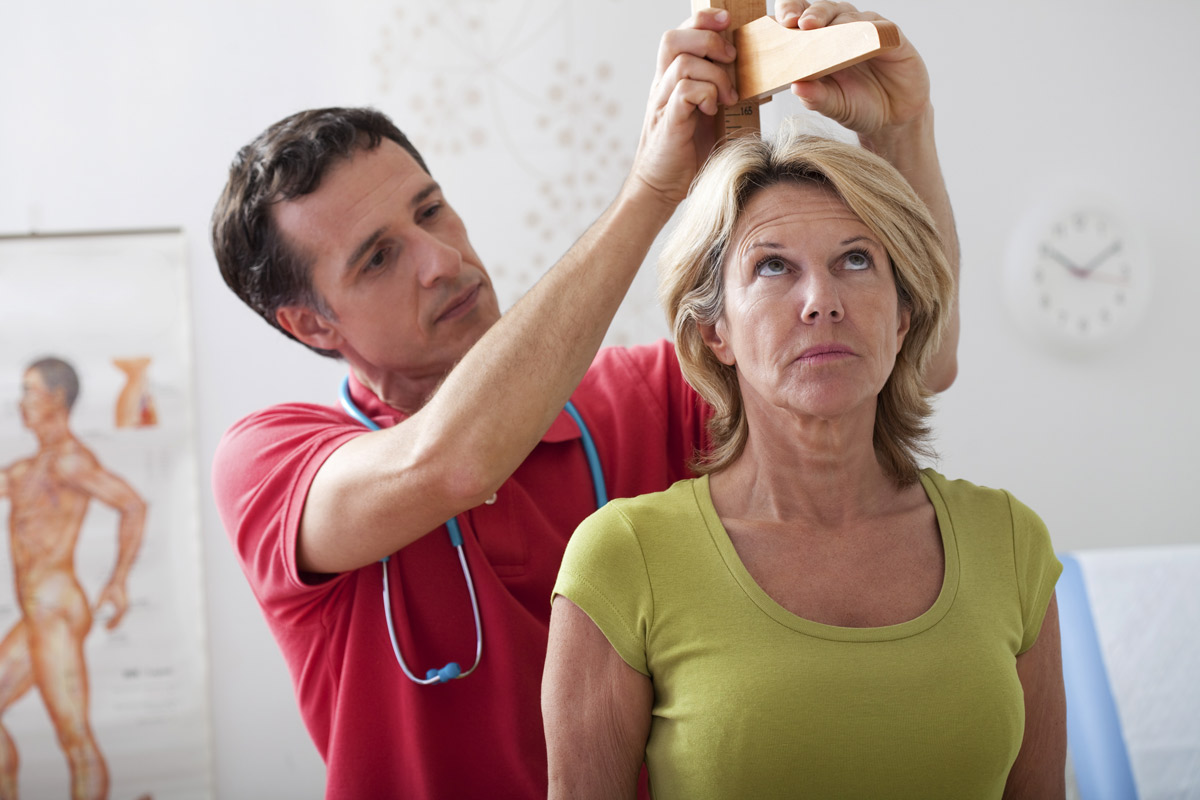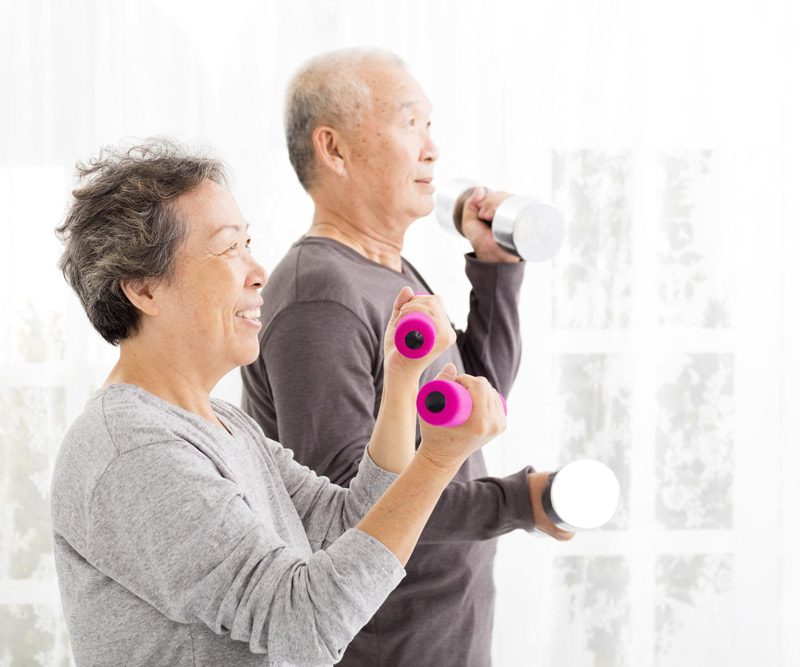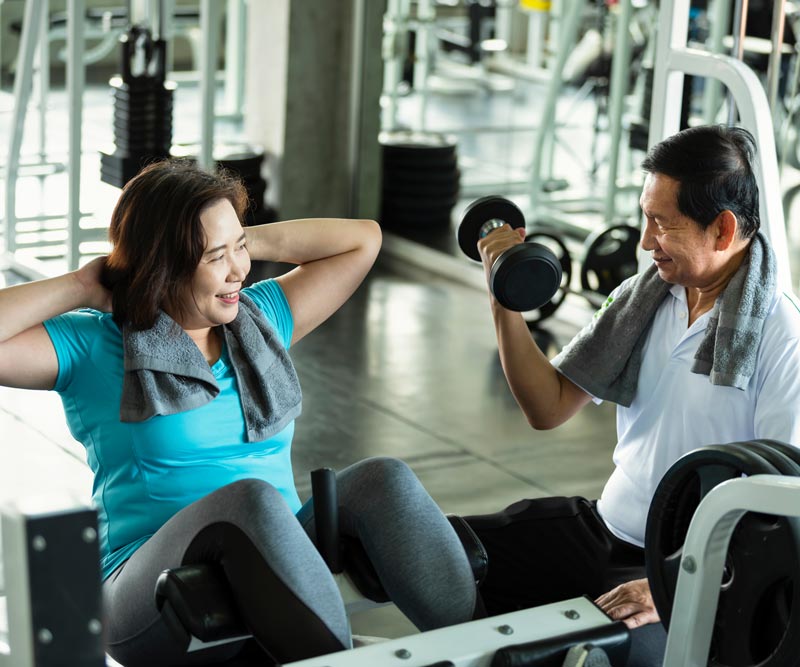
Honey, I Shrunk! How Aging Affects Our Bones, Joints & Muscles
Tips to Healthier Aging
Help – I think I’ve shrunk!
As we age, our bones, joints and muscles shrink in size and density.
This is most noticeable when we check our height and realize we’ve shrunk by an inch or two (or 4!).
Bones
The reason why our bones shrink as we age can be traced back to a process called bone remodeling, which can impair bone metabolism and lead to inadequate bone mineralization. (My colleague Dr. Tracy Snow Mills discusses bone remodeling in great detail in this article!)
Because of this, our kupuna are also at increased risk for developing fractures.
Some health conditions also can affect bone mineralization, including chronic kidney problems, abdominal absorption problems, malignancies, parathyroid and thyroid problems, as well as menopause.
Also, some individuals may be on medications that can cause bone demineralization indirectly, like steroids, hormone therapy or an immunosuppressant like chemotherapy.
One of the best ways to combat bone loss as we age is with a regular exercise regimen.
Our bones are constantly undergoing remodeling based on the stress they are subjected to.
In other words, the less active you are, the higher your risk of having brittle bones.
Engaging in strengthening exercises can help maintain bone strength.
Your body will need sufficient calcium and vitamin D to help with this process.
More often than not, you can get your required calcium intake from your diet.
Foods rich in calcium include milk, yogurt and cheese.

Some people are lactose intolerant; however, you can still get your calcium from sardines and green leafy vegetables like kale and broccoli.
Vitamin D, on the other hand, is present in our skin.
Sun exposure causes chemical changes that allow our body to use it.
Keep in mind that too much sun exposure can lead to skin darkening and increased risk for skin cancer.
Don’t worry! You can also get vitamin D from foods such as eggs, sardines, mushrooms and dairy.
Some people may need to take extra calcium and vitamin D in the form of supplements.
Consult your primary care physician (PCP) for the right dose. Too much calcium is not a good thing – it can cause painful kidney stones!
Joints
Joint pain is one of the most common complaints of our kupuna.
As we age, joints that bear the brunt of our daily activities tend to undergo changes from day-to-day wear and tear.
Hip and knee pain occur frequently, especially when the cartilage that acts as cushioning wears down and results in bone-on-bone contact.
You can also have this pain in your shoulders, thumbs and feet.
Individuals who have uncontrolled gout can experience these symptoms earlier.
It is important to have your PCP evaluate your joints if they hurt.
Aside from osteoarthritis and gout, some diseases may mimic arthritis and present as joint pain.
Contrary to common belief, it is not advisable to rest your joints if you have arthritis – this has been found to cause more stiffness and worsening of your joint function!
Instead, experts recommend regular participation in low-impact activities like swimming, yoga and cycling to improve joint function.
Initially working with a physical therapist is highly recommended in order to learn proper form and execution so you don’t end up hurting yourself.

Talk to your doctor about the right pain management for you so you can keep up with your busy lifestyle.
Remember, not all pain medications are created equal! You have to take into consideration other health problems that you have as well as other medications that you may be taking.
If, despite conservative management, your joint pain seems to be worsening, it might be time to see a bone specialist who can evaluate if you would be a good candidate for joint injections or joint replacement surgery.
This is a major procedure that your physician will discuss with you.
Most people who undergo this procedure experience improvement in their function and their pain.
Talk to your PCP to learn about the risks involved.
Muscles
As we age, our muscles lose strength and flexibility, which can lead to problems with balance and coordination.
Some medications also can cause muscle pain and weakness.
It is important to have your PCP evaluate you for this.
Participating in a regular stretching, balance and endurance exercise programs is key to keeping your muscles up and running.
Published on: July 16, 2019





